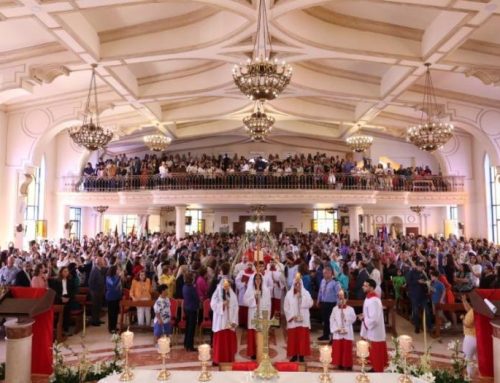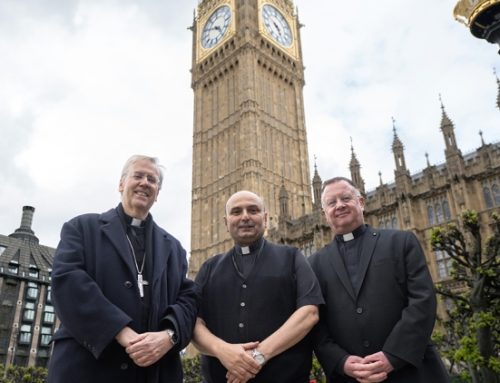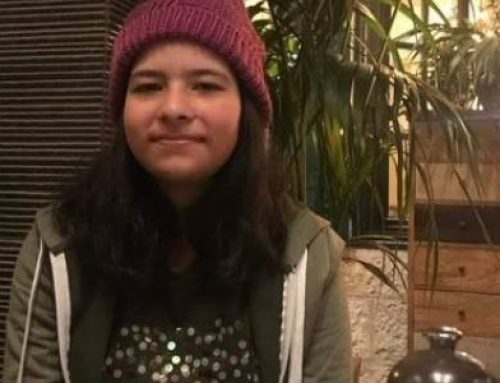For years, Syria and Lebanon have witnessed the decline of their Christian populations. Through engagement in multiple projects, ACN is actively fighting against the exodus of Christians.
“I would like to get out of Syria as quickly as possible and join my father in the Netherlands, where he is waiting for us to follow him,” explains Jessy, a 21-year-old Christian from Homs in western Syria. “Of course I will be sad to go, but a lot of the people I know have already left the country.”
A major portion of the Syrian population is living in poverty brought about by the civil war and inflation. “Ninety percent of Syria’s citizens are thinking of emigrating,” says Father Basilios Gergeos of the Parish of St. Joseph in Dwel’a, a Christian suburb of Damascus.
“This is a crucial moment!”
Both Muslims and Christians are leaving, but the number of Christians in Syria is so small that their departure would call into question the very existence of Christianity in the country. According to current estimates, only around 175,000 Christian families remain. And there is no end to the exodus in sight.
Sister Annie Demerjian of the Congregation of Jesus and Maria is furious about the situation: “It’s simply not fair! Our people are starving! After 13 years of suffering, people are tired. They have lost hope. It’s terrible to hear them say that they wish they were back in a time of war because they were better off then.” She adds that “this is a crucial moment. Either we help the remaining Christians see a future for themselves, or they will all leave.”
In neighboring Lebanon as well, where an economic collapse has brought the state to its knees, so many people are emigrating that authorities stopped issuing travel documents in 2022, because the number of new passport applications had reached 8,000 a day. And there is no sign of emigration ending or slowing down, with fears of the war in Gaza escalating further. Christians in particular are leaving in droves, though the roots of Christianity in the country can be traced back to the earliest beginnings of the Church. And as Jad Chlouk, the parish priest at the Maronite Cathedral of Saint George in Beirut, says, “If we leave the country, no one will bear witness to Jesus Christ here anymore.”
Projects that are setting milestones
In this environment, the Church in Syria and Lebanon is making every effort to help the Christian community. And since the Church lacks many resources, Aid to the Church in Need (ACN) is supporting the local Church by way of multiple projects.
Father Basilios Gergeos expresses his thanks to ACN’s benefactors: “Without them, we cannot be as close to the people as we would like. They help us to serve the people.” In the parish in Dwel’a, where he works with two other priests, the projects supported by ACN include a psychiatric day clinic, a kindergarten, a soup kitchen, scouting activities, summer camps, and the monthly distribution of milk to poor families, many of whom have children with growth disorders caused by malnutrition. “These initiatives show families that the Church cares for them and is here to help. The projects play a major part in determining whether they remain in Syria,” says Father Basilios.
Since it’s primarily young people seeking a better life abroad, ACN is striving, with the support of Catholic schools and various community groups, to give children and young adults social skills, open up future prospects, and reinforce their faith.
In summer 2023, World Youth Day took place in both Syria and Lebanon to coincide with the main event in Lisbon. Most young people in these two countries lacked the funds needed to travel to Portugal. “This was a milestone event because it was the first time that Catholic youth in each of the two nations were able to gather together, interact, and encourage one another to build up their home country,” says Xavier Bisits, the ACN project leader in Syria and Lebanon. “All the young people I talked to, especially in the least stable and most remote regions, were deeply moved by the sense of unity and solidarity.”
By Sina Hartert | churchinneed






